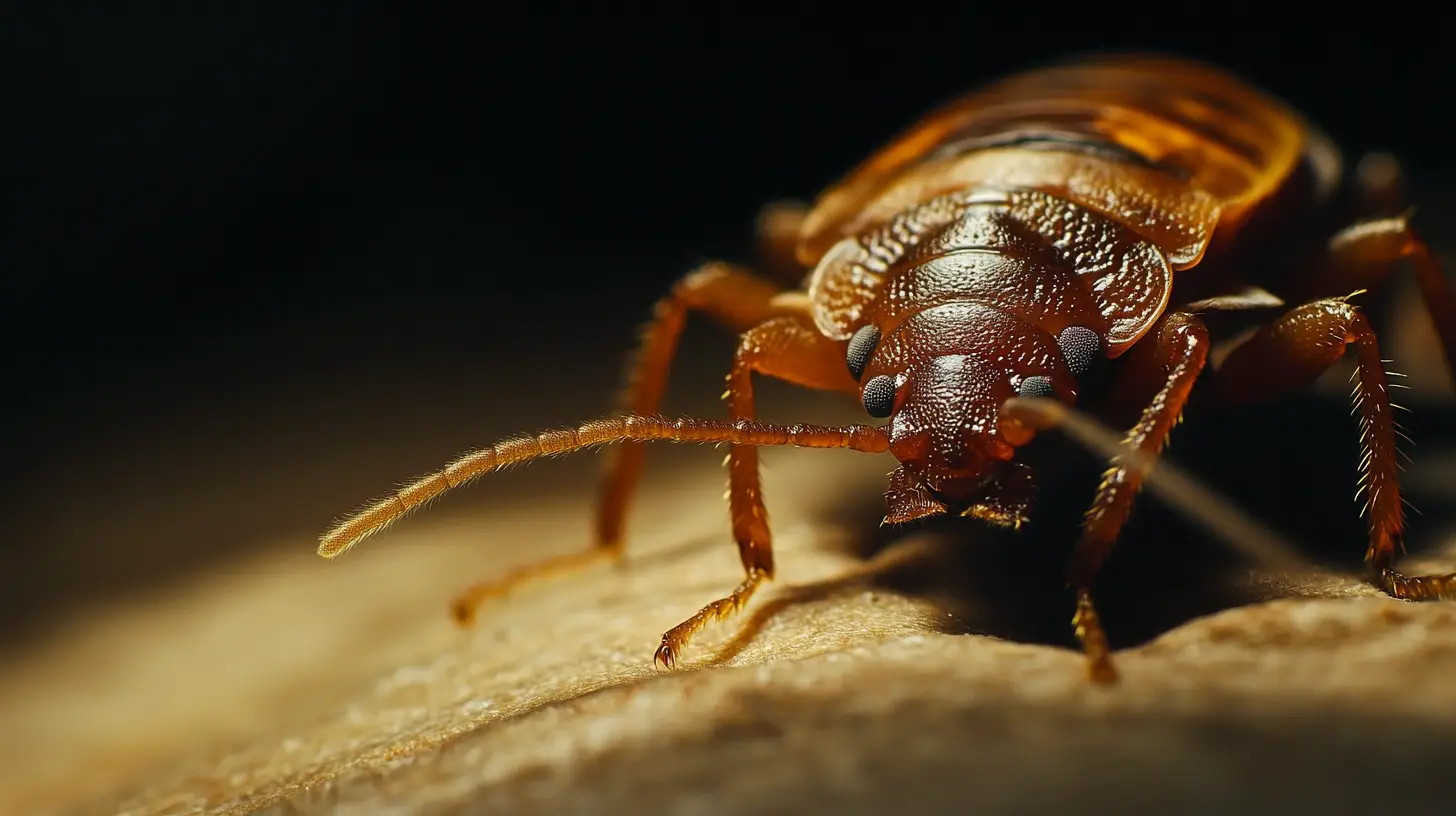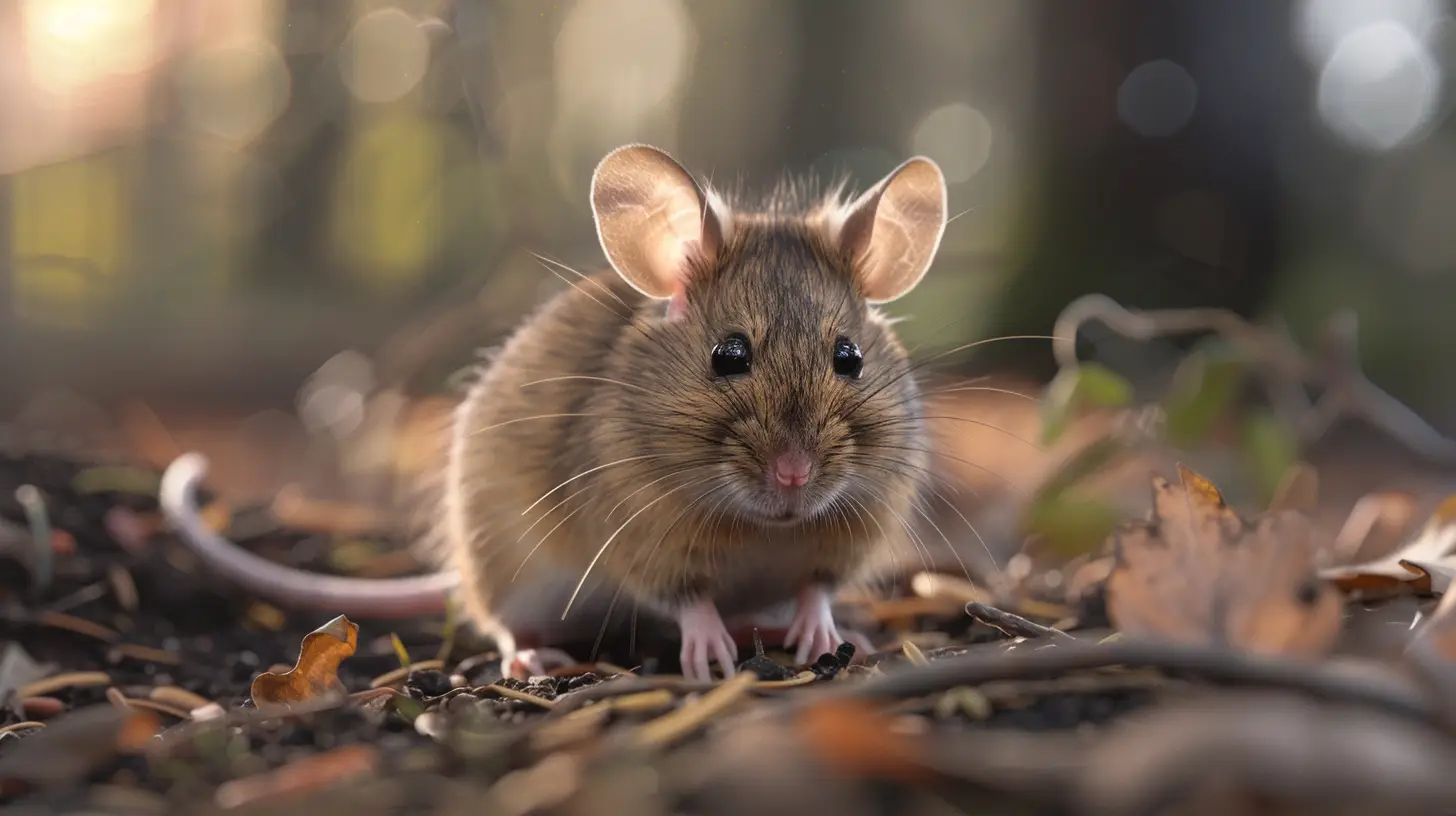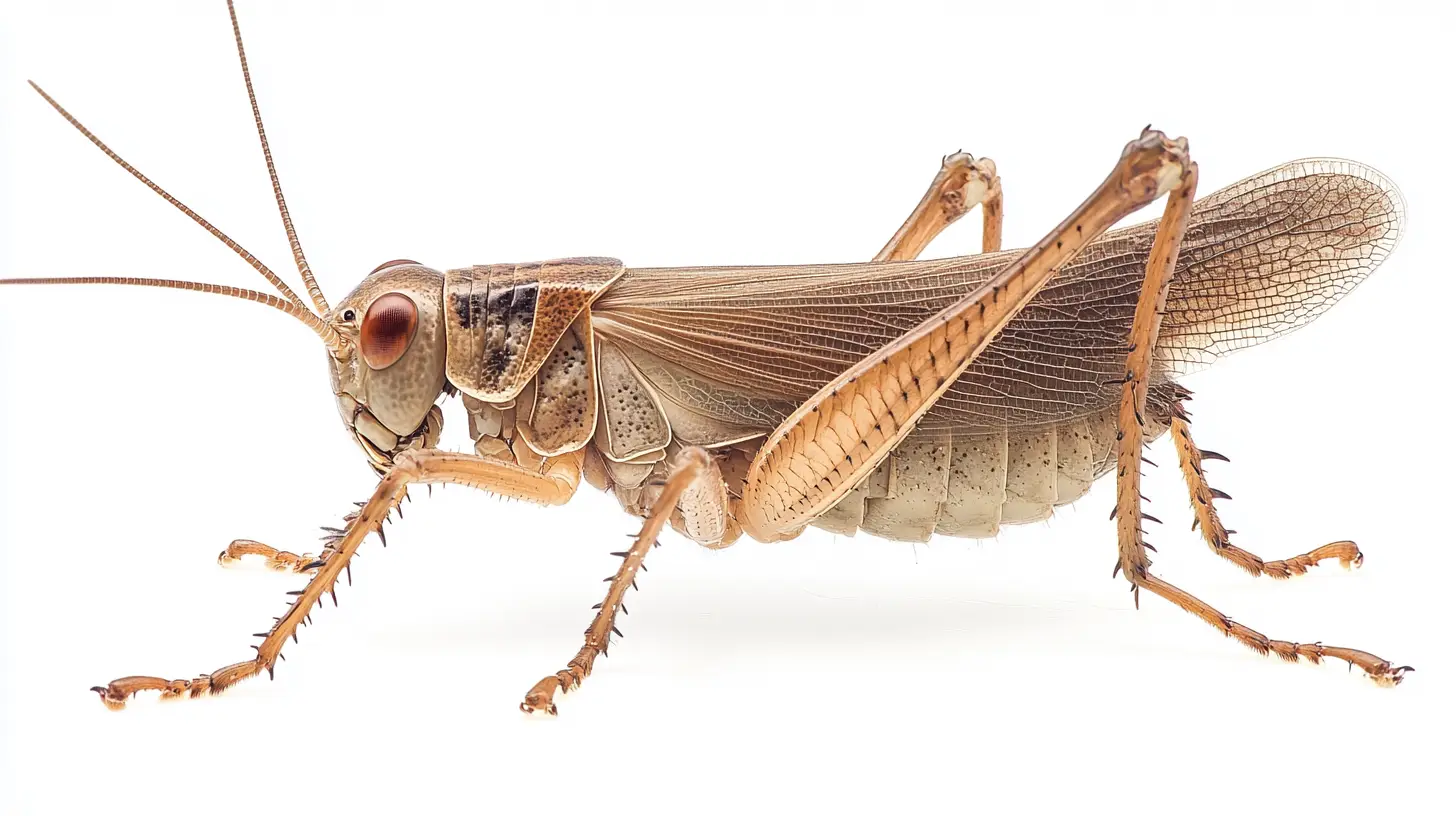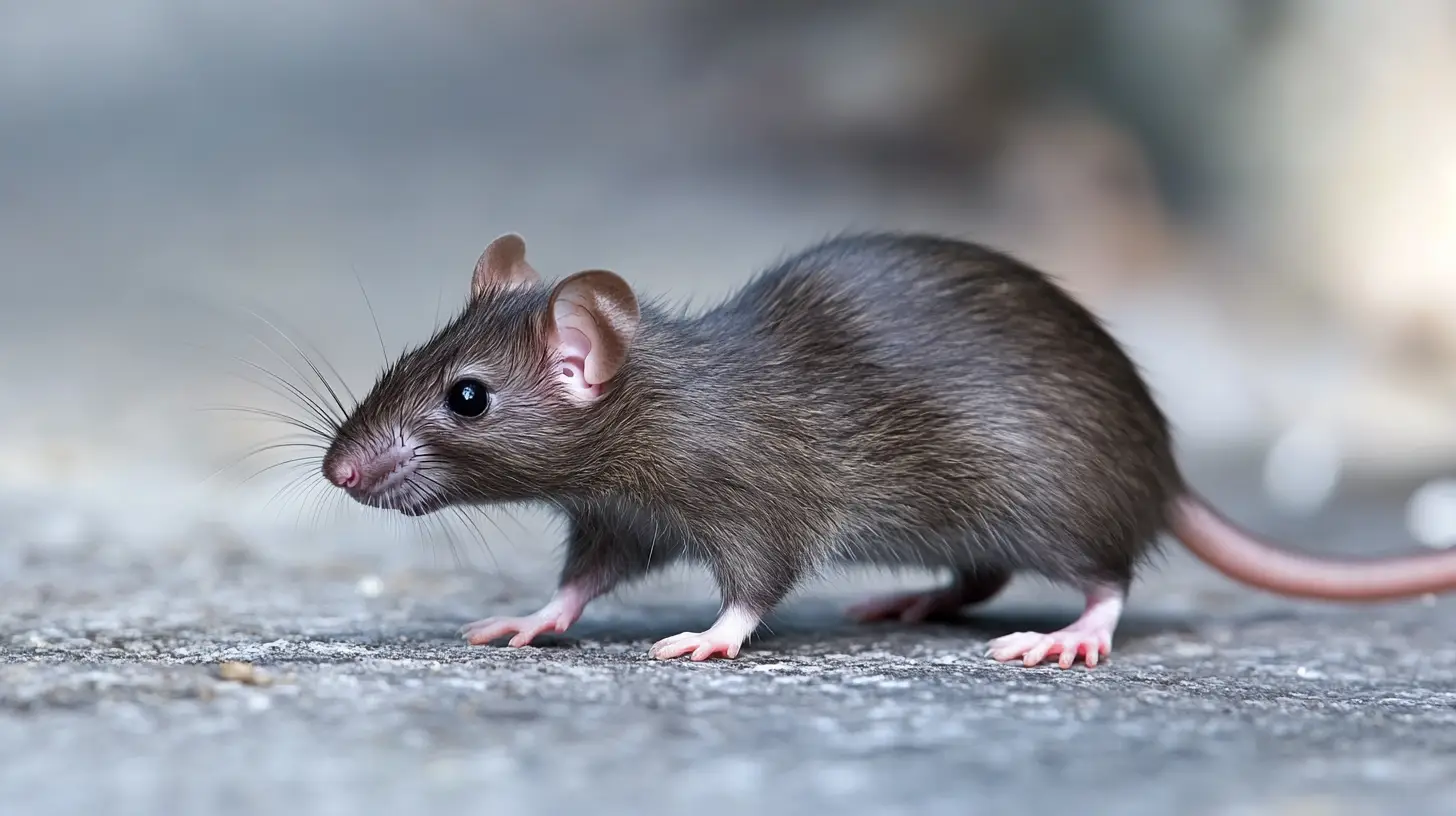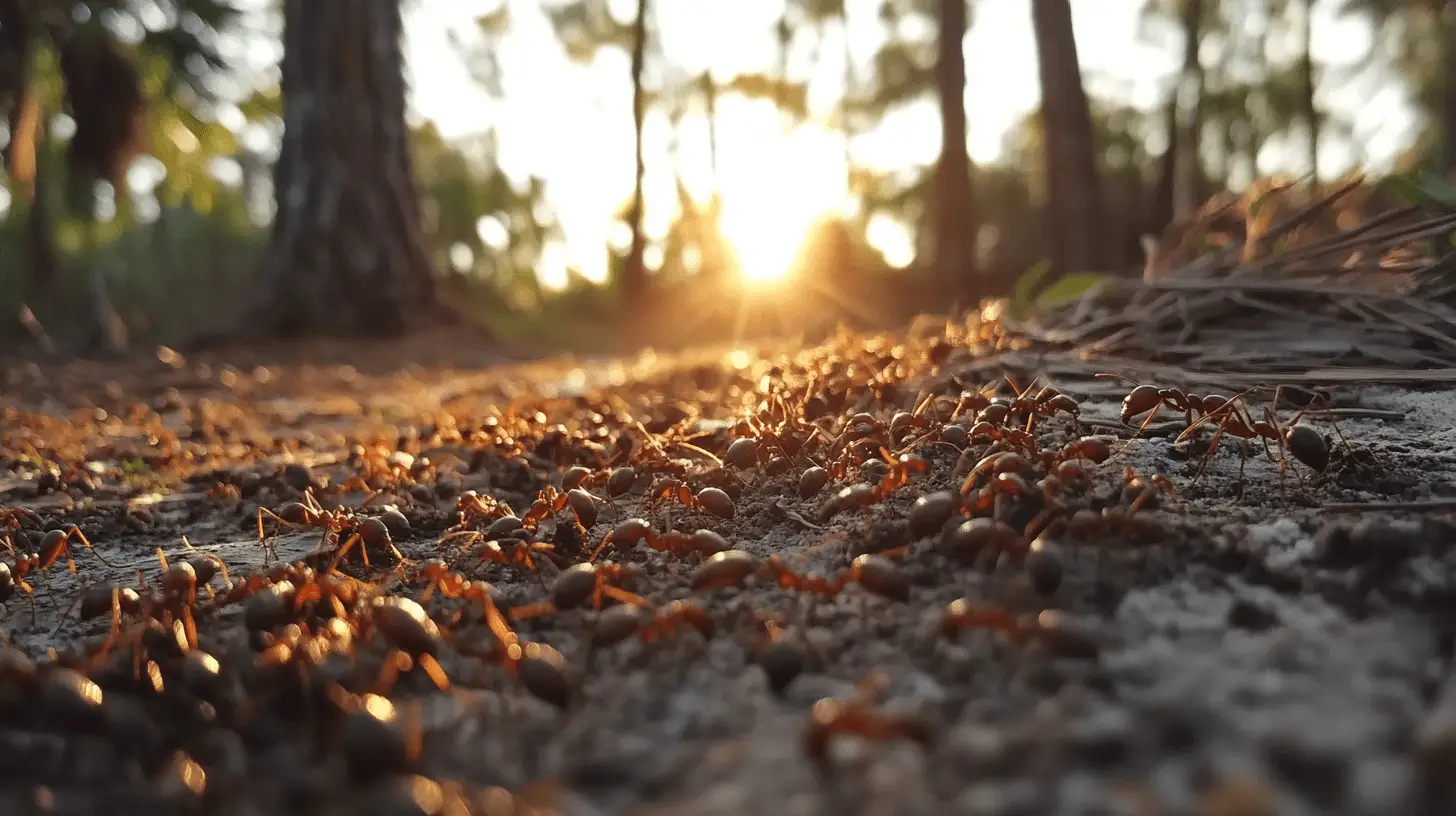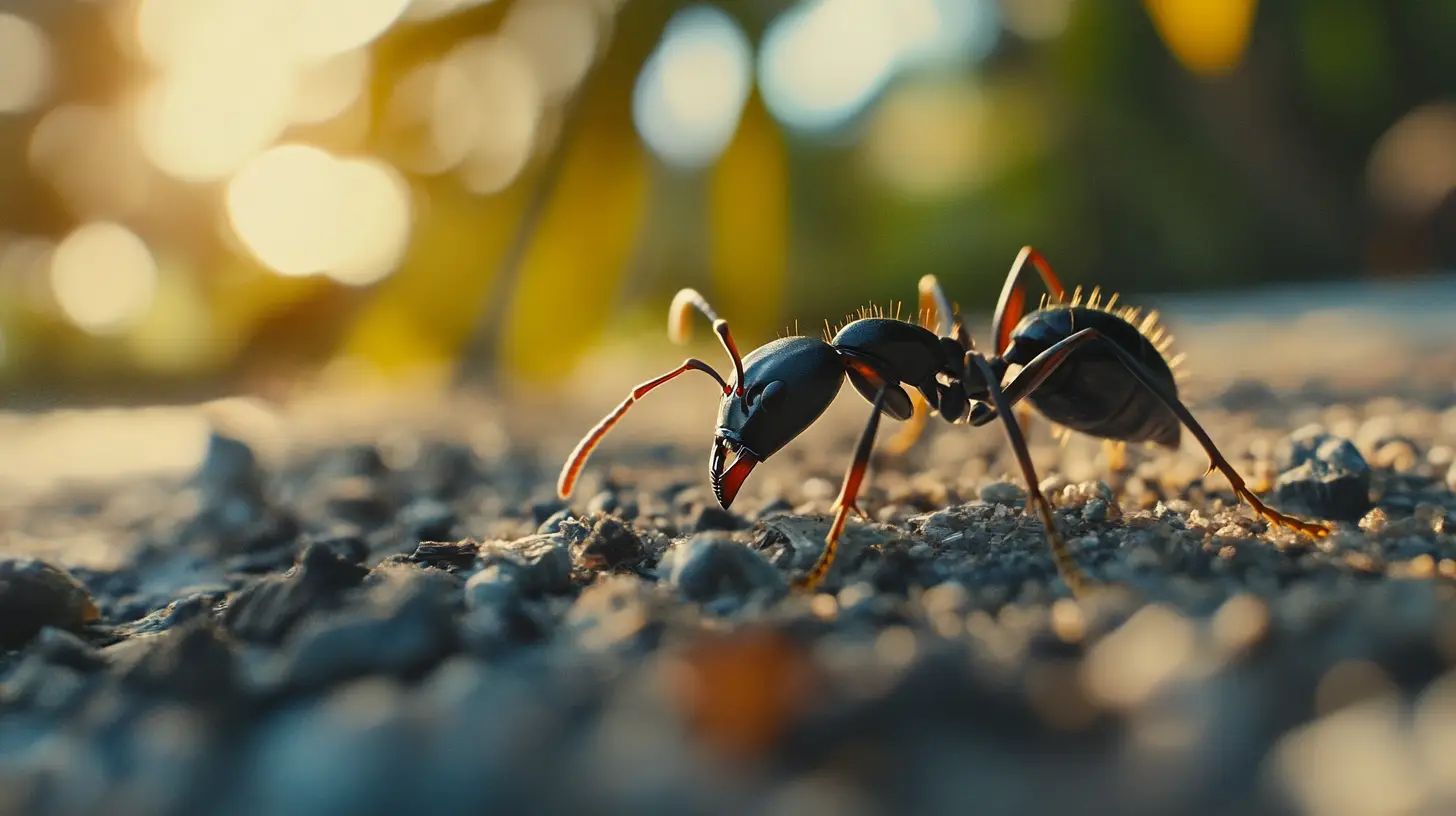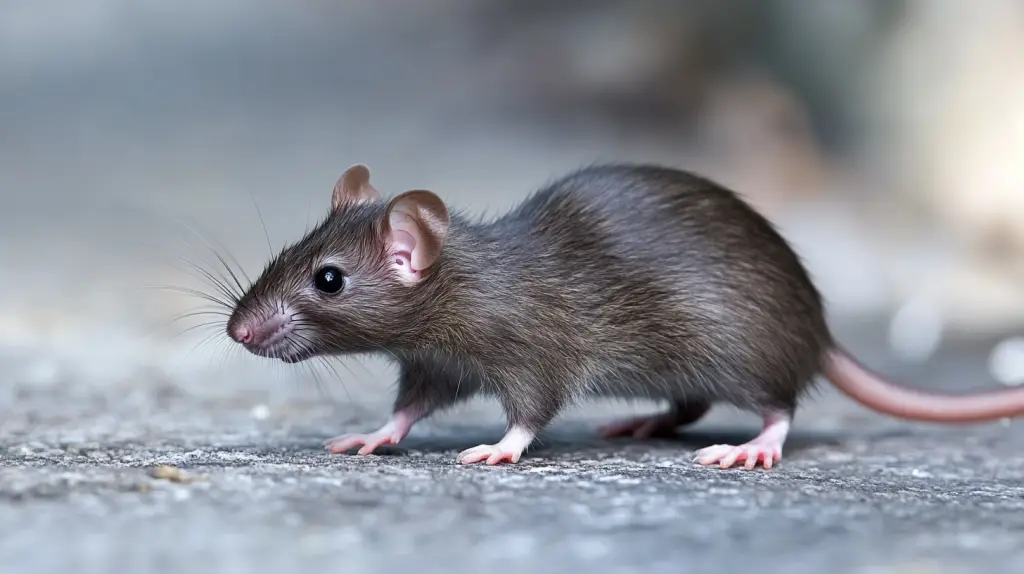
Table of Contents
Rodents may seem like minor nuisances, but they pose significant health risks that can affect your household more than you might realize. These sneaky invaders can carry a range of diseases—from hantavirus and leptospirosis to salmonellosis—that can be transmitted through their droppings, urine, and saliva. Not only do they contaminate food and surfaces, but their presence also lowers indoor air quality, potentially triggering allergies and asthma attacks. In Lakewood Ranch, where the warm climate can encourage rodent activity year-round, understanding these health risks is essential for every homeowner.
In this post, we’ll explore the hidden dangers rodents bring to your home, from direct health threats to indirect issues like parasites and structural damage. Learn why swift action and preventative measures are crucial to keeping your home safe, clean, and rodent-free, while protecting your family’s health.
Key Takeaways
- Rodents carry diseases that can spread through direct contact, droppings, urine, and parasites like fleas and ticks.
- Common rodent-borne illnesses include Hantavirus, leptospirosis, salmonellosis, and rat-bite fever.
- Health risks aren’t limited to wild rodents; even pet rodents can occasionally spread bacteria or viruses.
- Signs of a rodent infestation include droppings, gnaw marks, nests, and unusual nighttime sounds.
- Preventing infestations with secure food storage, sanitation, and professional pest control reduces disease risks.
- Taking proactive steps to control rodents can protect your home and health, especially in warm, rodent-friendly climates like Lakewood Ranch.
Diseases Carried by Rodents
Rodents, belonging to the order Rodentia, can be vectors for several diseases harmful to humans. Notable diseases include:
- Hantavirus: Transmitted through droppings, urine, and saliva, can cause severe respiratory issues.
- Leptospirosis: Spread through contact with water contaminated by urine, leading to flu-like symptoms.
- Salmonella: Often associated with food contamination from rodent droppings.
- Lymphocytic Choriomeningitis (LCMV): A viral infection transmitted through contact with infected rodents or their droppings.
Understanding these health risks is crucial for effective pest control and disease prevention.
The Health Risks of Rodents – Expert Insights
Rodents may seem like small, harmless creatures, but when it comes to health risks, they pose a significant threat. Known for spreading diseases, contaminating food, and causing structural damage, these pests are more than just an occasional nuisance. For those in Lakewood Ranch, understanding the risks rodents bring and the importance of prevention is essential.
How Rodents Spread Diseases
Rodents are infamous carriers of diseases, and they can spread them in various ways:
- Direct Contact: Humans can contract diseases directly from handling rodents or through bites and scratches.
- Indirect Contact: Disease transmission is also possible through exposure to contaminated rodent droppings, urine, and saliva in areas they inhabit.
- Vectors: Rodents often carry fleas, ticks, and mites, which can transmit diseases after feeding on infected rodents.
Key Rodent-Borne Diseases to Know
- Hantavirus: This virus is particularly dangerous and can cause severe respiratory issues. It primarily spreads through the droppings and urine of deer mice, which are more common in rural areas.
- Leptospirosis: This bacterial infection can be contracted through contaminated water or soil and can lead to kidney damage, meningitis, and liver failure.
- Salmonellosis: A common bacterial disease from rodent feces, salmonellosis can cause severe gastrointestinal distress and is often associated with food contamination.
- Rat-Bite Fever: This illness is contracted through bites or scratches from infected rodents, leading to fever, muscle pain, and other flu-like symptoms.
- The Plague: Although rare today, the bubonic plague, caused by the bacterium Yersinia pestis, historically spread through fleas on infected rodents, leading to devastating consequences worldwide.
Lakewood Ranch’s Unique Rodent Challenges
Due to Florida’s warm climate and abundance of natural food sources, rodents thrive in this environment. Unfortunately, the adaptability of rodents means they can easily make homes in attics, walls, and basements. Because they reproduce rapidly—female mice can produce up to 15 litters a year—an infestation can quickly escalate if left unchecked.
Interesting Facts about Rodents
Rodents are fascinating, resilient creatures with unique abilities:
- Gnawing Instincts: Their teeth continuously grow, allowing them to chew through materials like wood, plastic, and even some metals.
- Swimming Skills: Rats are incredible swimmers, capable of treading water for up to three days and even navigating sewer systems.
- Intelligence: Some rodent species, like rats, are highly intelligent, known for their problem-solving skills and ability to form social bonds.
Prevention and Control Strategies
Effective prevention is critical to avoiding the health risks associated with rodents. Here are some strategies tailored for Lakewood Ranch:
- Seal Entry Points: Rodents can squeeze through surprisingly small openings, so it’s essential to secure potential entry points around your home. Gaps as small as a quarter-inch can let them in.
- Proper Food Storage: Store food in airtight containers and clean up any crumbs or spills. Rodents are attracted to food sources and will readily enter homes if they can access it.
- Sanitation and Cleanup: Regularly clean areas where food is stored, and take care to dispose of garbage frequently, especially in warm climates where odors can attract pests quickly.
- Professional Extermination: While DIY methods can help in the short term, professional extermination is often the best solution for lasting results, especially with recurring infestations. Services that focus on trapping, baiting, and exclusion are highly effective.
Why Proactive Measures Matter
Rodents not only carry diseases that can directly impact your family’s health but can also damage property. By contaminating food and compromising structural integrity through gnawing, they can increase maintenance costs over time. For businesses, especially those handling food, rodent infestations can also lead to regulatory fines and reputation damage.
Climate change poses additional concerns. Rising temperatures may extend the breeding season of rodents, potentially increasing their populations and the diseases they carry. In areas like Lakewood Ranch, a proactive approach to rodent control can be crucial for health and property protection.
Rodents’ Role in Medical Advancements
While rodents present risks, it’s also worth noting their significant role in scientific research. Laboratory rats and mice have contributed greatly to advances in medicine, from vaccine development to cancer research. Their biology shares similarities with humans, making them valuable in understanding disease mechanisms and treatments.
Protecting Your Lakewood Ranch Home from Rodent Health Risks
Rodents may be small, but their impact on human health can be vast. Awareness, prevention, and regular monitoring are key steps in reducing these risks. If you suspect a rodent issue or want to prevent one before it starts, consider consulting local pest professionals who can assess and address potential threats.
By taking preventive measures now, Lakewood Ranch residents can protect their homes and families from the considerable health risks posed by these persistent pests.
Frequently Asked Questions (FAQs)
What diseases can rodents transmit to humans?
Rodents are known to transmit a range of diseases to humans, including Hantavirus, leptospirosis, salmonellosis, rat-bite fever, and the plague. Each disease has different modes of transmission, from direct contact with rodent urine or droppings to bites and scratches. Rodents can also carry fleas, ticks, and mites, which can transfer other diseases such as Lyme disease and murine typhus after feeding on infected rodents.
How do rodents spread diseases to humans?
Rodents spread diseases through various pathways, such as:
- Direct Contact: Diseases are transmitted through bites, scratches, or handling of rodents.
- Indirect Contact: Humans can contract diseases by coming into contact with rodent urine, droppings, or saliva left in areas like kitchens, attics, or basements.
- Vector-Borne Transmission: Fleas, ticks, and mites that have fed on infected rodents can bite humans or pets, passing along illnesses like the plague, murine typhus, or Lyme disease.
Are all rodents carriers of diseases?
Not all rodents carry diseases, but many species have the potential to harbor pathogens due to their environments, habits, and interactions with other infected animals. Wild rodents are typically more likely to carry diseases than domesticated pet rodents. However, it’s still essential to maintain hygiene and take preventive steps, as even seemingly harmless rodents like mice or rats can sometimes carry and spread bacteria or viruses.
What are the signs of a rodent infestation in my home?
Signs of a rodent infestation include droppings, gnaw marks on food packaging or structures, nesting materials like shredded paper, holes chewed into walls or floors, and unusual noises (scratching or scurrying) at night. You may also notice greasy smudges along baseboards where rodents travel. If you see one rodent, it’s likely there are more, as they tend to move in groups and reproduce quickly.
Can I get sick from touching rodent droppings?
Yes, touching or inhaling particles from rodent droppings can lead to infection. Diseases like Hantavirus, salmonellosis, and leptospirosis can spread through contact with rodent droppings, urine, or nesting materials. It’s essential to wear protective gloves and masks if you need to handle or clean areas where rodent droppings are present.
How dangerous is hantavirus, and how is it transmitted?
Hantavirus is a serious respiratory illness that can be life-threatening. It primarily spreads through inhalation of dust particles contaminated with the urine, droppings, or saliva of infected rodents, especially deer mice. Symptoms start with fever, fatigue, and muscle aches and can progress to severe respiratory distress. Prompt medical attention is crucial for anyone suspected of Hantavirus exposure.
Can pet rodents also carry diseases?
Pet rodents like mice, rats, hamsters, and guinea pigs can carry some diseases, although they’re less likely to spread serious infections compared to wild rodents. However, pet rodents can still harbor bacteria like salmonella and transmit diseases like lymphocytic choriomeningitis virus (LCMV) if they come into contact with infected animals. Good hygiene, regular vet visits, and careful handling can help minimize risks.
What should I do if I’m bitten by a rodent?
If bitten by a rodent, immediately clean the wound thoroughly with soap and water to reduce infection risk. Then, apply an antiseptic and cover it with a clean bandage. It’s important to seek medical attention, as a healthcare provider can assess the risk of disease transmission and may recommend antibiotics or additional treatments if necessary.
How can I prevent rodent-borne diseases in my home?
Preventing rodent-borne diseases starts with keeping rodents out of your home. Here are key measures:
- Seal Entry Points: Block gaps or holes around windows, doors, and pipes where rodents can enter.
- Store Food Securely: Use airtight containers to store food and clean up crumbs immediately.
- Eliminate Water Sources: Fix leaks and remove standing water.
- Keep a Clean Home: Regularly clean areas like attics, basements, and garages to discourage rodent nesting.
- Professional Pest Control: Regular inspections and treatments can help keep rodents out and prevent diseases from spreading.
Are some rodent species more likely to carry diseases than others?
Yes, some rodent species are more prone to carrying specific diseases. Deer mice, for instance, are the primary carriers of Hantavirus in North America. Norway rats and roof rats are more likely to carry leptospirosis, rat-bite fever, and even plague. Species that thrive near human habitats, such as house mice and brown rats, also tend to carry more pathogens due to their close contact with human environments.
Can rodents transmit diseases to my pets?
Rodents can indeed transmit diseases to pets, especially cats and dogs that may hunt or come into close contact with them. Fleas or ticks that bite infected rodents can transfer illnesses such as plague or tularemia to pets. Additionally, pets that ingest or handle infected rodents may risk salmonellosis or other bacterial infections.
What are the symptoms of rodent-borne diseases in humans?
Symptoms of rodent-borne diseases vary by disease but commonly include fever, fatigue, muscle aches, nausea, and respiratory issues. Hantavirus, for example, can lead to severe respiratory distress, while leptospirosis may cause jaundice, liver issues, and kidney problems. If you suspect exposure to rodent-related diseases, seek medical care promptly.
How long can rodent-borne viruses survive in the environment?
The survival time of rodent-borne viruses depends on environmental conditions like temperature and humidity. Some, like Hantavirus, can survive for several days in dried droppings or urine under cool and dry conditions. This resilience emphasizes the need for proper safety measures when cleaning areas that may be contaminated with rodent waste.
Is it safe to clean up rodent droppings on my own?
It can be safe to clean up rodent droppings with proper precautions. Wear gloves, a mask, and safety goggles, and avoid sweeping or vacuuming, which can aerosolize viruses. Instead, spray droppings with a disinfectant, let it sit, and carefully wipe up the droppings with disposable towels. Dispose of waste in a sealed bag and wash hands thoroughly afterward.
Can rodents contaminate food and water supplies?
Yes, rodents are known to contaminate food and water sources. They leave behind bacteria, viruses, and parasites in their droppings, urine, and saliva, which can lead to foodborne illnesses like salmonellosis. Contaminated food or water should never be consumed, and it’s crucial to store food in sealed containers to prevent rodent access.


